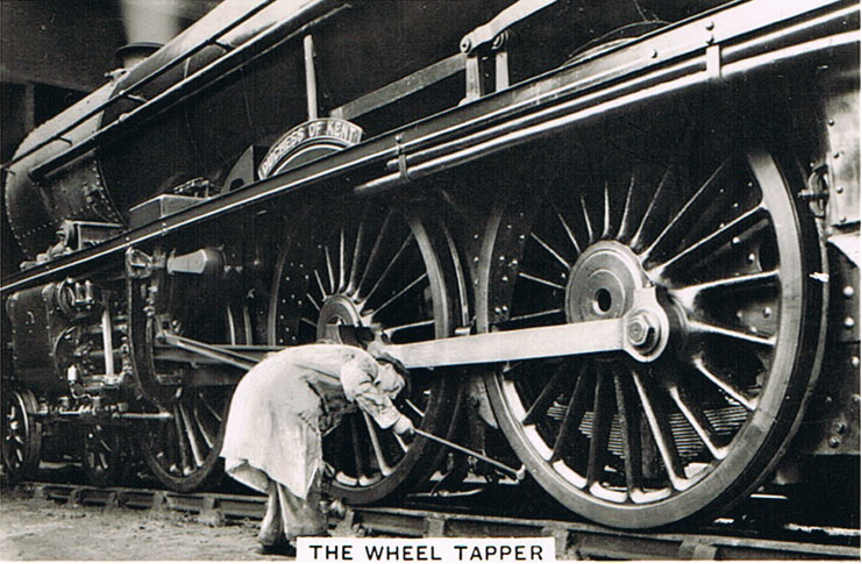In the early days of the railroad, safety inspectors would commonly tap the train wheels with a long-handled hammer to listen for the telltale sounds of cracks or other potential hazards. Because of this practice, they came to be called “wheeltappers”. Rudyard Kipling, the British author of The Jungle Book, once told a story of a man who was employed as a wheeltapper at a railway station in Delhi. Despite many years of diligent service, the man never learned what all his tapping was actually for. Day after day he went about his frivolous activity content just to have a uniform and a regular paycheck. Oblivious to the problem, his supervisor was pleased to have such a hardworking and faithful employee despite the fact that the man’s efforts were contributing nothing whatsoever of value to the organization, or for that matter, the passengers (aside from perhaps a false sense of security).
The story might seem ridiculous, but it’s uncomfortably close to reality for many people who spend much of their day engaged in busy work that can feel disconnected from meaningful goals. Today’s organizations are filled with passionate people who often wonder if their efforts really make a positive impact on the world. Others have become complacent, content to tap away at the wheels for less lofty pursuits such as maintaining a position and a salary, or perhaps the favor of a boss. Sadly, many leaders find themselves in the same categories. The best leaders understand that they have both the privilege and responsibility to bestow value on the time and efforts of others, helping them to connect with the importance and even the sacredness of their work. Leaders who do this well provide a bigger boost to their team’s effectiveness than any promotion or pay increase possibly could.
The scriptures tell a beautiful story of how David, an extraordinary leader, vividly demonstrated this leadership principle for his soldiers when they broke through enemy lines just to get him a drink from his own well in Bethlehem. Upon learning they had risked their lives just to please him, he refused to drink the water and instead poured it out as an offering to God (1 Chronicles 11:18-19). In doing so, he sent a powerful message about the sacred nature of life and how his men should dedicate themselves to higher goals than simply making the boss happy. What message are you sending to your staff about the value of their contributions and the worthiness of the goals they should be pursuing?
Reflection Questions
- How can you bring more visibility to the behind-the-scenes work of staff members, helping them to connect their efforts to worthwhile goals?
- How might you be unintentionally devaluing others based on your own reactive and self-protective tendencies (we all have them)?
- What types of “wheeltapping” are going on in your organization that could be reduced or eliminated altogether?


